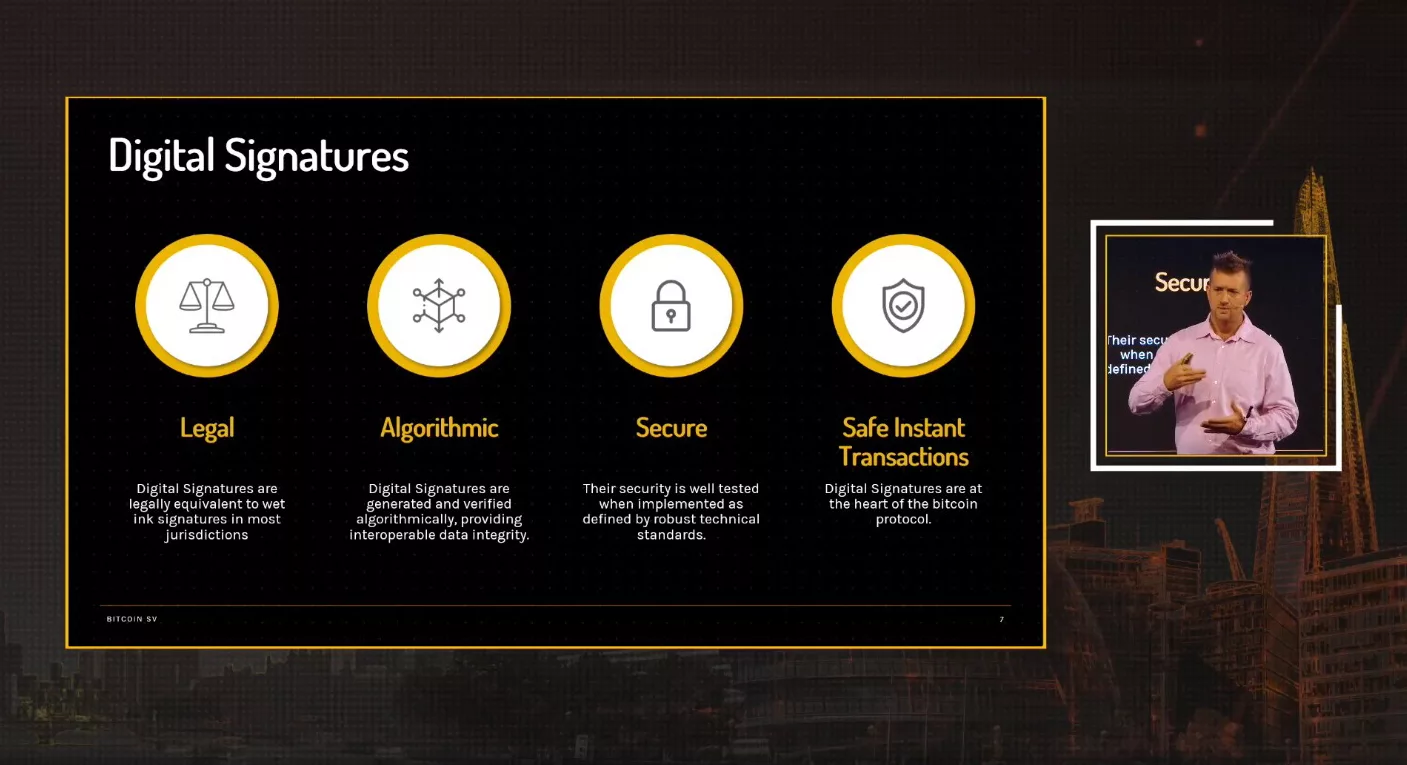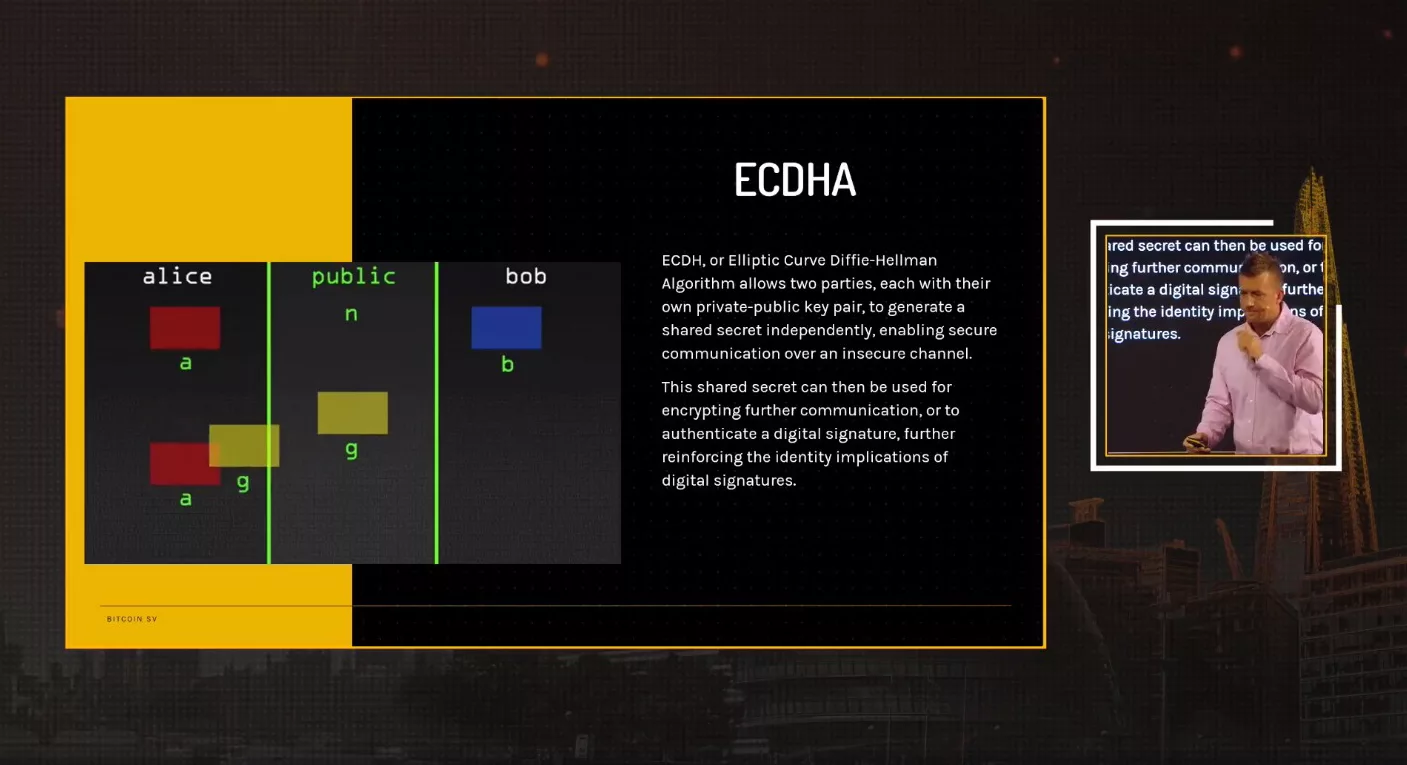
|
Getting your Trinity Audio player ready... |
Todd Price is the curriculum specialist at the BSV Blockchain Association. On Day 3 of the London Blockchain Conference (LBC), he appeared on the technical stage to talk about digital signatures and identity on Bitcoin.
What is a digital signature?
We’ve heard a lot about the importance of definitions at the LBC. Price kicks off this presentation by defining a digital signature as a unique numerical value that ensures a document hasn’t been changed in time. However, he notes that numerical values aren’t signatures in law until they are linked to identity. He tells us that if done properly, digital signatures are legal, algorithmic, and secure, and they must offer instant transactions.

Price also points out that the definition of a Bitcoin is a chain of digital signatures. Therefore, understanding what digital signatures are is important to understanding what Bitcoin is. While he doesn’t specifically delve into this in the presentation, readers should realize that protocol changes like SegWit, which breaks the chain of digital signatures in Bitcoin, fundamentally alter what Bitcoin is.
Better privacy models and improved efficiency
Price then dives into how one-way functions, elliptic curve point arithmetic, public-private key pairs, and ECDHA all play a role and allow for the creation of new privacy models and improved efficiency in many areas. The efficiency that BSV blockchain unlocks has been a key theme at this conference, and here we see it mentioned again.

Delving deep, Price briefly explains an nChain white paper, titled “Enhanced Key Exchange and Shared Secrets,” that allows for secure communications which are impossible to snoop on. The implications of this are profound and will lead to a new paradigm. At CoinGeek, we’ve often mentioned how we’ve all become used to the fact that government agencies and corporations like Meta (NASDAQ: META) can view our communications at will; this sort of system will allow for truly secure, private communications again.
Price closes the session by giving a live demonstration of a tool he built that allows for creating unique, specific transactions. This tool will enable us to specify input/output values and transaction types, set nLocktime parameters, and much more.
Watch: How to use a digital signature to show control of a Bitcoin address

 11-21-2024
11-21-2024


